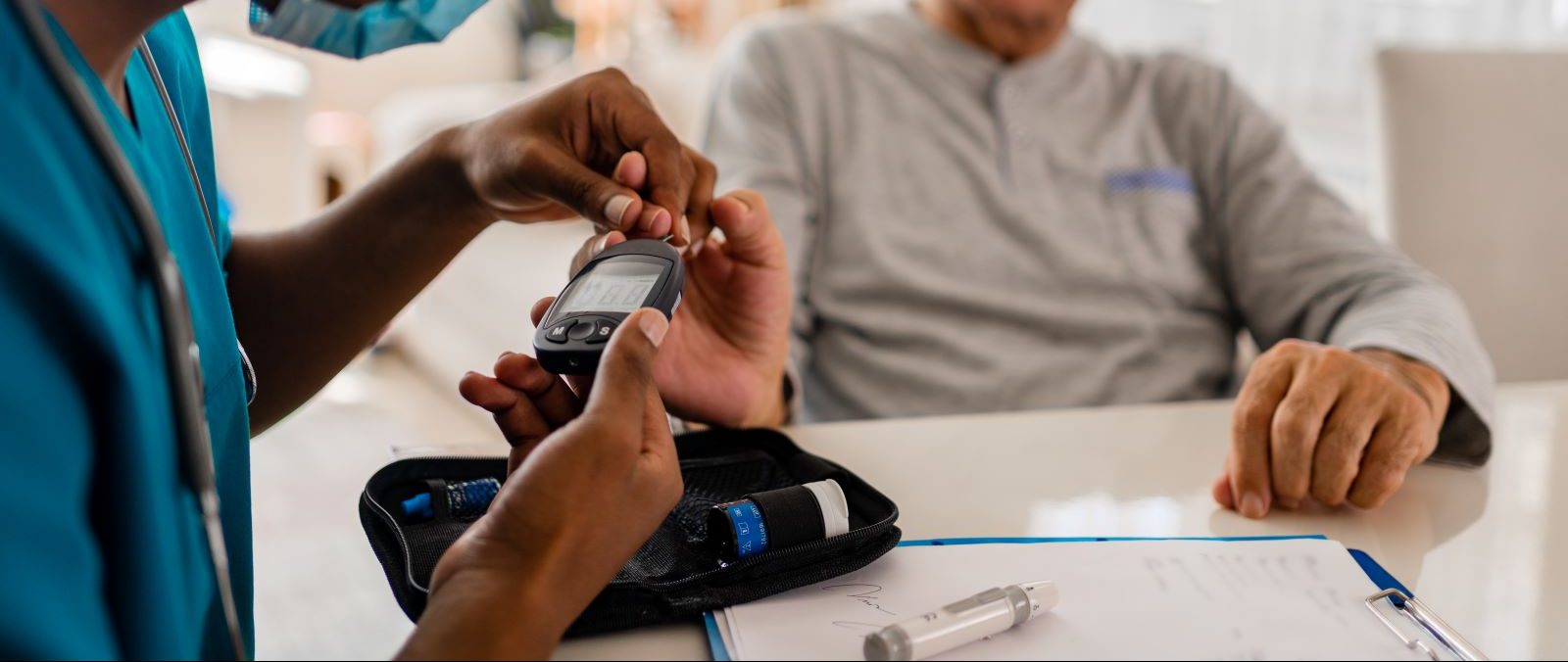<< Back
Can Weight Loss Surgery Treat Type 2 Diabetes?

January 09, 2023
There’s one treatment for type 2 diabetes that may have never crossed your mind.
Weight loss surgery is shown to have a positive impact on type 2 diabetes patients with a BMI over 30. The surgery improves blood sugar levels and sometimes, even sends the disease into remission.
Nicholas Dugan, MD, a bariatric surgeon with Hartford HealthCare in Fairfield, explains how bariatric surgery can treat diabetes and other things to consider.
Why does weight loss surgery improve diabetes?
Bariatric surgery helps type 2 diabetes patients in two distinct ways, says Dr. Dugan.
“After surgery, there is a rapid increase in gut hormones called incretins, including the most well-known GLP-1. This hormone increases the body’s natural insulin release and inhibits glucose release, lowering blood sugar levels,” Dr. Dugan says.
“As the patient loses weight, they also experience decreased insulin resistance, a condition that also allows blood sugar levels to increase to unhealthy levels.”
Improvement, not cure
While Dr. Dugan notes the majority of patients who have diabetes and undergo bariatric surgery see their sugar levels improve dramatically, he stops short of calling the procedure a cure.
“Diabetes and obesity are chronic diseases that we do not cure with medication or surgery,” he says. “We can improve or put the disease in remission, but we do not consider the disease cured.”
In addition, the likelihood that one’s diabetes improves – and how much – after surgery depends on how long and how severe the disease was before surgery, he adds.
> Related: You May Be Eligible for Weight Loss Surgery Based on New Guidelines
Keep an eye on sugar
In the first year after bariatric surgery, patients experience dramatic weight loss, but Dr. Dugan says any patient who went into the operating room with diabetes must still monitor their blood sugar levels for a bit.
“For the first few months, it’s important to monitor blood sugar levels if the patient did so before surgery and is on any medication such as insulin that would cause low blood sugar,” he says.
Monitoring looks for sugar levels that climb too high or dip too low, Dr. Dugan notes.
“Once their diet has stabilized and they have consistently normal blood sugars off medication, patients can usually stop checking their blood sugar,” he says. “Diet modification is an important part of maintaining weight loss and remission of diabetes after surgery. Limiting sugar intake and eating a well-balanced, protein-rich diet is important for long-term success after surgery.”